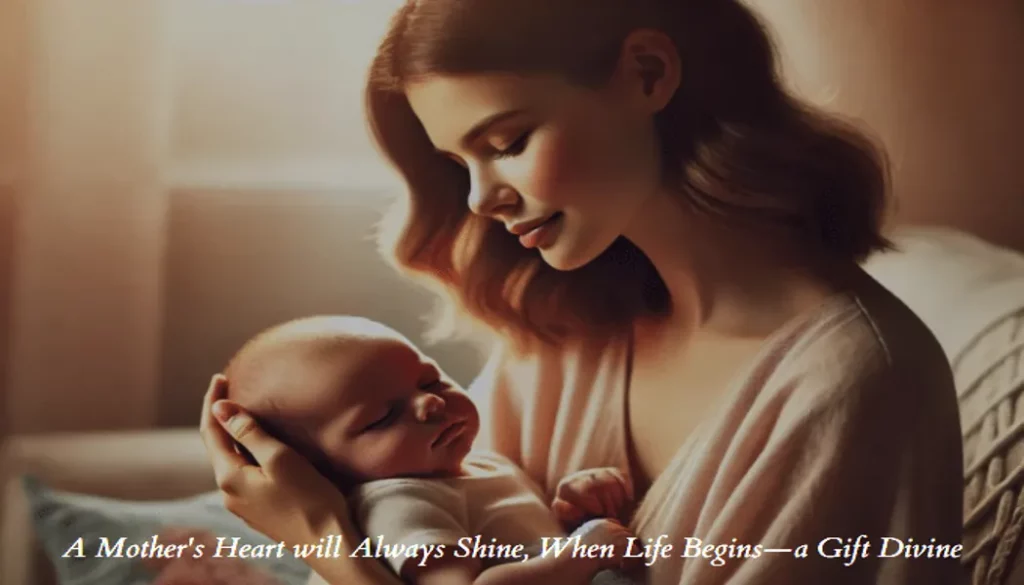Pregnancy is a time of glowing skin and fuller hair, but after the baby’s arrival, things might start to change on the hair front. You’re washing your hair one day and notice a slightly alarming amount of it swirling down the drain. So, what gives? During pregnancy, higher estrogen levels mean hairs stay in their growth phase longer, giving you that luscious mane. However, post-delivery, hormone levels dive, and hair enters the shedding phase, often all at once, leading to postpartum hair loss.
Turns out, this isn’t just you—postpartum hair loss is pretty common. Many new moms notice it around three months after giving birth. It can last a few months but usually gets better by the baby’s first birthday. The exact timing can vary, though. Every mom, and every body, is different.
When it comes to hormones, estrogen and progesterone are the main players. They rise during pregnancy, making your hair grow like never before. Post-birth, their levels drop, triggering hair shedding. While there’s no stopping this hormonal rollercoaster, knowing what’s happening helps.

Remember, this is natural and temporary. The hair shedding won’t go on forever. The key lies in being patient with the process since hair will gradually go back to its normal growth cycle. But understanding why it’s happening is a good step toward feeling a bit more in control after all those baby-led surprises.
💔 Navigating the Emotional Impact of Postpartum Hair Loss
Hair loss can feel like an extra burden on top of everything else new moms juggle. Adjusting to a changing body and identity as a parent can stir feelings of insecurity. It’s crucial to remember you’re not alone, and these changes are part of the post-pregnancy journey that many share.
It’s common to feel a wave of emotions when you see more strands than usual in your brush. Acknowledge these feelings. After all, your hormones are still in the post-baby spin cycle! Embrace this phase with kindness toward yourself. It’s fine to miss your pre-pregnancy hair, but celebrate the strength and resilience you’ve gained through motherhood.
Mental health is just as important as physical health during this time. Ensuring you have a support network can make a world of difference. Sharing your experiences with friends or other new moms can offer comfort and solidarity. If you find talking about it hard, consider joining online support communities where you can connect with others in similar situations.

Engage in self-care—whatever that looks like for you. Whether it’s meditating for a few minutes, taking a short walk, or simply having a quiet cup of coffee, make time for things that make you feel good. Keeping your mental health in check not only helps you but your family too.
Remember, every strand of hair that falls is part of a process, a phase, not a reflection of who you are. Own the transformation. You’re shaping your unique motherhood style, and along the way, it’s okay to seek help, talk about feelings, and most importantly, be kind to yourself.
🧴 Exploring Treatment Options and Lifestyle Adjustments
Losing hair can be distressing, but it’s comforting to know that postpartum hair loss is usually temporary. In most cases, you can expect your hair to gradually return to its pre-pregnancy glory. The key is exploring treatments and lifestyle tweaks that ease the transition.
Wondering if breastfeeding plays a part in your hair story? While breastfeeding itself doesn’t cause hair loss, it can influence how quickly your hormones settle post-birth, impacting hair shedding patterns. Focus on keeping that hormone rollercoaster as smooth as possible.
Laser therapy might sound futuristic, but it’s a pretty neat option to consider. It’s safe, effective, and easy to use. Plus, it’s widely available. People find it promising for boosting hair growth, offering a bump in confidence.
Dietary supplements can also be a helpful part of the plan. Eating right can go a long way in reducing hair loss, and supplements can fill in nutritional gaps when your diet isn’t doing the job solo. Think of these as your nutritional sidekicks.

Balanced nutrition isn’t just a suggestion—it’s a strategy. Foods rich in vitamins A, E, and C, as well as iron and omega fatty acids, are your hair’s best friends. Not only do they nourish your hair, but they support your overall health, which is always a win post-pregnancy.
🛠️ Practical Tips to Minimize and Manage Hair Loss
When you’re in the thick of postpartum hair shedding, gentle care goes a long way. Handle your hair with a softer touch, opting for a wide-tooth comb to detangle instead of pulling through knots, which can prevent unnecessary breakage.
Switch up your hair care routine to include nourishing shampoos and conditioners, preferably those with ingredients known for strengthening hair such as biotin or keratin. Avoid tight hairstyles that add stress to your strands, like braids or ponytails.
Consider incorporating natural remedies like coconut oil or aloe vera into your hair regimen. These are hydrating and can be soothing for your scalp, enhancing the overall health of your hair.
Reducing stress is another powerful tool in your kit. High stress can amplify hair shedding, so finding a routine that includes relaxation activities—maybe yoga, deep breathing exercises, or even a short walk outside—is beneficial for decreasing stress and aiding in healthier hair growth.
Understanding the stages of hair regrowth and setting realistic expectations is crucial. New hair growth won’t happen overnight, but consistent care and a bit of patience will show results in time. Embrace the process and trust that your hair will find its rhythm again.
🌷 Embracing Change: Encouragement and Positivity Amidst Challenges
Seeing chunks of hair go can be unnerving, and it’s easy to feel down about it. But here’s the silver lining—knowing that postpartum hair loss is a shared journey between moms worldwide can be comforting. Hair regrowth is around the corner, even if it seems slow coming.
Be kind to yourself. Remember, your worth isn’t tied to your hair, but to the incredible strength and love you show your family every day. Celebrate these moments and remember: bald spots don’t define you.

Small acts of encouragement and self-acceptance can lift your spirits. Appreciate what your body has achieved. Whether it’s bringing a new life into the world or handling countless sleepless nights, your body—and mind—are doing wonderful things.
Motherhood is a time of big changes, and your hair story is just one chapter of a much bigger, beautiful book. Stay witty, stay positive, and let the resilience that’s got you this far push you forward.
You’ve got this—all the little hurdles, including this one. Keep your chin up, hair will grow back, and the experience of motherhood will only grow richer, just like you.

✅ FAQ – Dealing With Hair Loss After Pregnancy: What You Need To Know
❓ How long does postpartum hair loss typically last?
Postpartum shedding usually begins around 2–4 months after delivery and can last up to 6–12 months. In most cases, hair returns to its pre-pregnancy fullness once hormone levels stabilize—though some women notice permanent texture or volume changes.
❓ Can breastfeeding make postpartum hair loss worse?
Not directly. Breastfeeding doesn’t cause hair loss, but it may prolong certain hormonal shifts (like low estrogen), which can extend the shedding phase slightly. The effect is subtle and varies between individuals.
❓ Should I cut my hair short to manage postpartum shedding?
It’s not necessary, but many new mothers choose shorter styles to reduce tangling, minimize breakage, and make styling easier. A haircut won’t stop shedding, but it can make it feel less overwhelming during recovery.
❓ Are there safe treatments or supplements to reduce hair loss while breastfeeding?
Yes—some options like biotin, zinc, iron, and vitamin D are generally considered safe during breastfeeding, especially if you’re deficient. However, always consult your doctor before starting any new supplements or topical treatments.
Last updated: June 2025 based on latest research


Leave a Reply